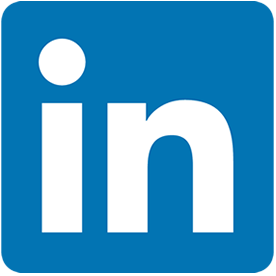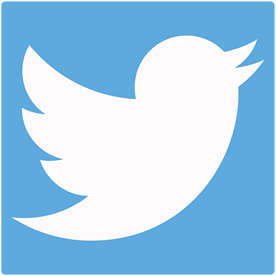Social Media Guidelines
Social media is changing the way we work, offering a new model to engage with customers, colleagues, and the world at large. We believe this kind of interaction can help you to build stronger, more successful business relationships.
These are the official guidelines for participating in social media for TES. If you’re a TES employee or contractor creating or contributing to blogs, wikis, social networks, virtual worlds, or any other kind of social media, these guidelines are for you. They will evolve as new social networking tools emerge, so check back regularly to make sure you’re up to date. If you are ever hesitant or unsure about something you are posting on your online profile or social channels, please contact the TES Marketing Team.
 1. Disclose
1. Disclose
Your honesty—or dishonesty—will be quickly noticed in the social media environment. Please represent TES ethically and with integrity.
- Be truthful: If you have a vested interest in something you are discussing, be the first to point it out and be specific about what it is.
- Be up-to-date: If you are leaving TES, please remember to update your employment information on social media sites.
2. Protect
Make sure all that transparency doesn’t violate TES’s confidentiality or legal guidelines for commercial speech—or your own privacy. Remember, if you’re online, you’re on the record—everything on the Internet is public and searchable. And what you write is ultimately your responsibility.
- Don’t tell secrets: Never reveal TES classified or confidential information. If you are posting your job description on LinkedIn, be sure not to reveal confidential information. If you’re unsure, check with TES HR or Marketing departments. Off-limit topics include litigation, non-published financials, and unreleased product info. Also, please respect brand, trademark, copyright, fair use, and trade secrets. If it gives you pause—pause rather than publish.
- Don’t slam the competition (or TES): Play nice. Anything you publish must be true and not misleading.
- Don’t overshare: Be careful out there—once you hit “share,” you usually can’t get it back. Plus, being judicious will help make your content more crisp and audience-relevant.
3. Use Common Sense
Perception is reality and in online social networks, the lines between public and private, personal and professional, are blurred. Just by identifying yourself as a TES employee, you are creating perceptions about your expertise and about TES. Do us all proud.
- Add value: There are millions of words out there—make yours helpful and thought-provoking. Remember, it’s a conversation, so keep it real. Build community by posting content that invites responses—then stay engaged. You can also broaden the dialogue by citing others who are writing about the same topic and allowing your content to be shared.
- Take Ownership: If you make a mistake, admit it. Be upfront and be quick with your correction. If you’re posting to a blog, you may choose to modify an earlier post—just make it clear that you have done so.
Additionally if you see something being shared related to TES on a social media platform that shouldn’t be happening, immediately inform TES Marketing.
Linkedin Guidelines & Etiquette

TES COVER PHOTO For LinkedIn – BELOW.
- Personalise your connection requests. Tell them WHY you’re connecting.
- Once connected, send a SHORT “welcome” message.
- Don’t join groups and immediately start selling yourself.
- Don’t ignore the more professional tone of the network.
- Offer content, information, advice, ideas in the way of blogs & article updates.
Additional Guidelines & Etiquette for Facebook

- Complete all aspects of your Facebook profile.Social media accounts that are partially completed or vague are harder to take seriously because they appear less professional. Choose a name or handle that clearly identifies you and take the extra few minutes to carefully fill out the ‘About You’ sections.
- Never post on other peoples, groups or business pages telling them to go and like the TES Facebook page.
- When it comes to business stay away from politics & religion. Ensure you do not post anything that comes into this bracket, its also important to ensure you never like or comment on anything religious or political.
- Maintain a high standard of unique and fresh content, stay away from spam or duplicate content. Never copy other company or industry status updates verbatim.
- Never promote yourself or TES during a local or national tragedy. At times like these, people on social media are reacting & grieving to tragedy, it may be best to cancel any scheduled posts out of respect.
- Don’t post multiple posts in a very short period of time. Space your posts out, at least 2-3 hours apart is standard practice. It’s usually best to have designated times set for your posts to go out. (Times that have been tested with a positive response)
- Complaining, moaning, or arguing on Facebook never looks classy and can seriously damage TES’s reputation.
- Try to mix up your posts – use a variety of content, ideas and posts. Constant sales posts or business promotional posts will get boring and lead to unlikes by your followers. Offer more, offer information, offer competitions, and offer humour & relevance.
- If you want to share somebody’s post or information without clicking the share button, make sure you at least tag their page in your post referencing them.
Additional Guidelines & Etiquette for Twitter

- Follow only people of relevance that will be interested in your business.
It is also advisable to unfollow or remove any irrelevant, spam or inappropriate followers that follow your profile. (celebs, comedy profiles, unprofessional accounts) - Use no more than 140 characters. Don’t tweet two or three part tweets. And refrain from shortening tweets by using abbreviations or poor grammar. For example; Do not write ‘2’ instead of ‘to’ , and do not write ‘l8r’ instead of ‘later’.
Using 70-100 characters, from research seems to be best practice and has a much better engagement rate. The reason for this is that when people retweet you tweet, there has been left just enough room for them to add a personal note or message to the tweet, keeping it just below 140 characters. - As with all other Social Media profiles, refrain from bad language, political and religious views, and most importantly don’t favourite or re-tweet anything that may cause offence or tarnish your brand. Try to keep a neutral and positive personality with your Twitter account.
- Do not buy followers. Fake followers will be shown your content (and never interact) when perfectly relevant (potentially interested) followers may miss out on seeing your content. (Twitter may only show your tweets & content to a percentage of your followers) Again, don’t buy followers. Ever!
Additional Guidelines & Etiquette for Instagram

- Don’t ask people to follow you or use hashtags like #tagsforlikes – it’s unprofessional.
- Don’t overgram. No one likes their feed filled up with one user.
- Use hashtags for your brand appropriately. The golden number of hashtags is apparently 10/11 hashtags.
- Follow (& be followed by) appropriate accounts.
- Remember to stay away from accounts & posts that relate to religion, politics, sex, violence, comedy, or touchy subjects with the general public.
- Don’t buy followers. Ever!
Additional Guidelines & Etiquette for Google+

- Always +mention users when commenting on their posts.
- When sharing a post, always add your own commentary to it first.
- Share to Circles to target your content.
- Use Google+ formatting for your text—bold, italics, and strike-through.(Details of this can be provided)